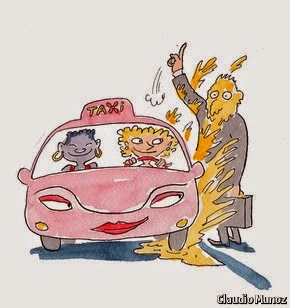According to the Myanmar Times, the trio was sentenced to 2 years in jail for insulting religion through written word or pictures and a further six months for breaching local authority regulations.
The sentencing comes as a reminder of how easy it is to get into trouble abroad for what to some are not-so-obvious crimes.
Here's
a sampling of reasons travelers might suddenly, surprisingly, find
themselves in jail -- or at least forced to pay a fine.
Netherlands: Don't carry or use drugs.
While
the Netherlands has a reputation for being tolerant on the use of
so-called "soft drugs," this exists only for designated areas.
Possession of prohibited substances or buying them can carry a prison sentence.
Penalty: Arrest, detention.
Italy (Venice) and USA (San Francisco): Feeding the pigeons is against the law.
Penalty: Fine.
Japan: It's illegal to bring some commonly available nasal sprays containing pseudoephedrine into Japan.
Penalty: Fine.
Spain (Barcelona):
It's against the law to wear a bikini, swimming trunks or to go
bare-chested away from the beach-front area in Barcelona.
Penalty: Fine.
Singapore: Chewing gum on the Mass Rapid Transit (MRT) system is strictly prohibited.
Penalty: Fine.
Italy (Florence):
It's an offense to sit on steps and courtyards or to eat and drink in
the immediate vicinity of churches and public buildings in Florence.
Penalty: Large fine.
Saudi Arabia: Photographing government buildings, military installations and palaces is prohibited.
Penalty: Arrest and detention.
Barbados: It's an offense for anyone, including children, to dress in camouflage clothing.
Penalty: Fine.
Nigeria: It's illegal to take mineral water into Nigeria.
Penalty: Fine, confiscation.
Fiji: Sunbathing topless is prohibited.
Penalty: Fine.
Maldives: Public observance of religions other than Islam is prohibited for non-Maldivians and visitors.
Penalty: Arrest, detention.
United Arab Emirates:
Alcoholic drinks are served in licensed hotels and clubs, but it's a
punishable offense to drink, or to be under the influence of alcohol, in
public.
Tourists won't have any problems in licensed venues, though residents need a permit to be able to drink in them.
Sri Lanka: Another country that doesn't take kindly to its religion being insulted, whether the slight is intentional or not.
Tourists have been arrested for mistreating Buddhist images and artifacts while taking photos, while one woman was reportedly arrested and deported for having a tattoo of Buddha.
Peru: It's illegal to purchase any souvenirs made with animal parts.
That includes condor feathers, which are found widely in the tourist markets of Cusco.
Though in most cases officials reportedly turn a blind eye, tourists could face fines for the offense.


